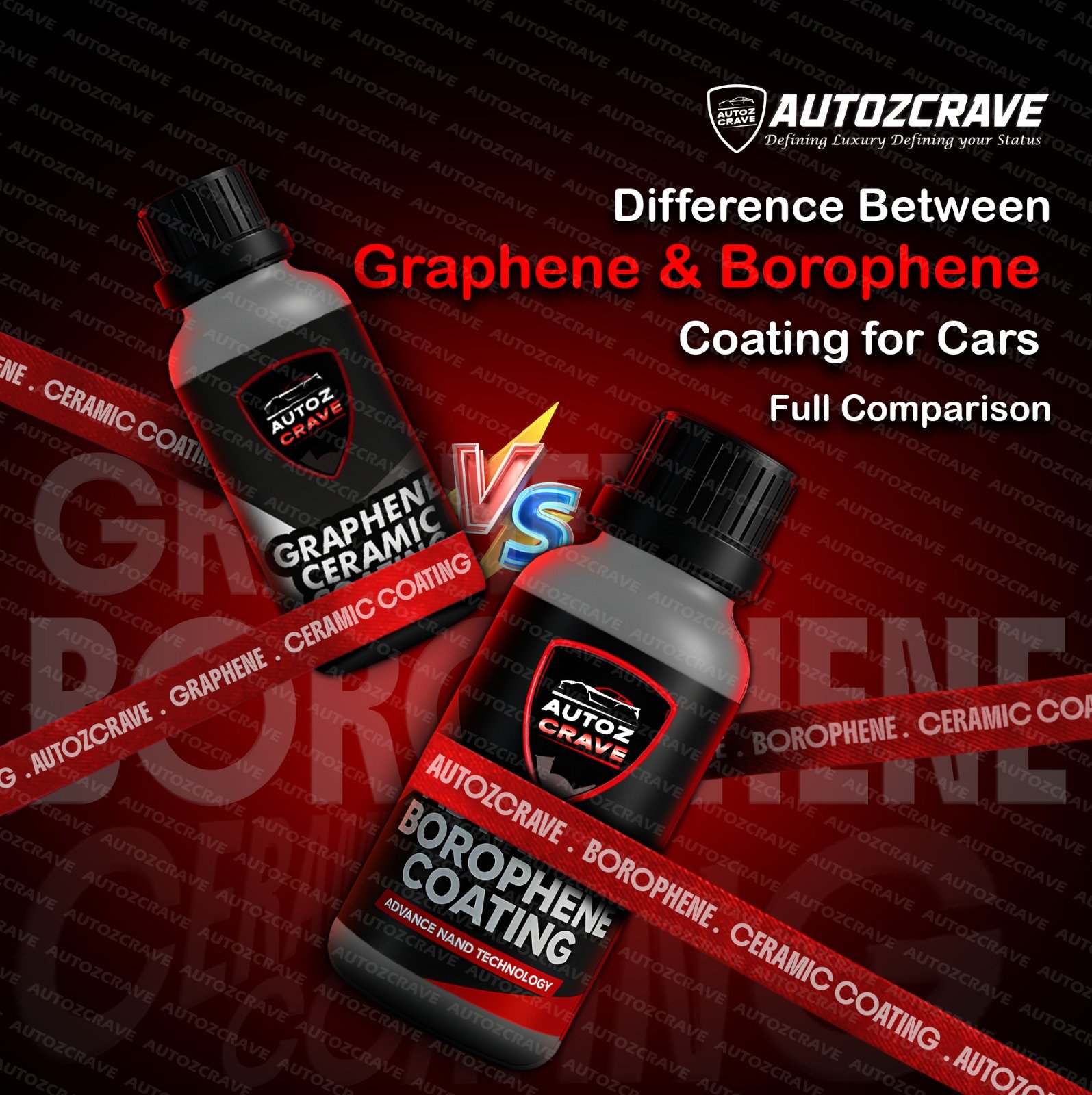Home Blog Details


Home Blog Details


Post By Autozcrave || 2025-06-26
Every car owner wants their car to look shiny and stay protected for years. That’s where car coatings come in. In recent years, two advanced types of coatings have become popular graphene coating and borophene coating.
But what is the difference between graphene and borophene coating? Which one is better for your car? In this blog, we’ll explain everything in simple words and help you choose the right coating for your car.

Graphene coating is a liquid product made using graphene, which is a very strong and thin material. It forms a clear layer on your car’s surface that protects the paint from damage.
Graphene is known to be 200 times stronger than steel. It also handles heat and water really well. When applied to your car, it gives a deep, glossy shine and keeps your car clean and shiny for a long time.
Main Benefits of Graphene Coating:
Many car owners today prefer graphene coating for cars because it gives strong protection and looks amazing.
Borophene coating is a new and advanced car coating made using borophene, a material made from boron atoms. It is even lighter and more flexible than graphene.
Borophene coating is designed to give even better water beading, shine, and heat resistance. It’s a very new technology in the car care world, and it’s gaining popularity quickly.
Main Benefits of Borophene Coating:
People who want the best car coating for shine and durability are now looking at borophene coating for cars as the next big thing.
Let’s compare the two side by side to understand the real difference:
|
Feature |
Graphene Coating |
Borophene Coating |
|
Shine |
Deep gloss |
Mirror like shine |
|
Water Repelling |
Excellent |
Superhydrophobic (Better) |
|
Durability |
3–5 years |
5–6 years |
|
Heat Resistance |
High |
Very high |
|
Scratch Protection |
Strong |
Medium to strong |
|
Price in India |
₹6,000–₹12,000 |
₹10,000–₹20,000 |
|
Technology |
Tried and tested |
New and advanced |
In most cases, borophene coating lasts longer than graphene coating. It also handles heat and chemicals slightly better. So, if you live in a hot place or park your car in the sun, borophene might be the better option for long lasting car shine coating.
However, both coatings give excellent protection when applied properly by a professional.
Here’s a simple way to decide:
Both are excellent options. Your final choice depends on your budget and what you expect from your coating.
When it comes to car coating durability, both graphene and borophene offer great long term results. Graphene coating protects the car for 3 to 5 years, while borophene can go up to 6 years with proper care. If you wash and maintain your car regularly, both coatings will keep your vehicle shining and safe from damage.
The graphene coating price in India usually starts from ₹6,000 and goes up to ₹12,000 depending on the car size and quality of product used. Some premium graphene options may cost more.
On the other hand, borophene coating price is a bit higher. Since it is a newer and more advanced technology, the price starts from ₹10,000 and can go up to ₹20,000.
It’s important to check with a trusted detailing studio to know the exact price for your vehicle.
If you’re still confused about borophene vs graphene coating, here’s a quick guide:
Pick Graphene Coating:
Pick Borophene Coating:
Either way, your car will thank you!
Both graphene and borophene coatings are amazing choices for modern car owners. They not only make your car look shiny and new but also protect it from daily damage, UV rays, and water spots.
If you care about your car’s looks and paint protection, investing in one of these advanced car coatings is totally worth it.
1. What is the main difference between graphene and borophene coating for cars?
Answer:
Graphene coating is a strong and tested coating that gives excellent gloss and heat resistance. Borophene coating is a newer and more advanced formula that offers better shine, stronger water-repelling (superhydrophobic) effect, and even better heat protection. Borophene is slightly more premium than graphene.
2. Which coating is better for Indian weather – graphene or borophene?
Answer:
Both work well in Indian weather, but borophene coating offers better heat resistance, which is helpful for cars exposed to sunlight. It also lasts longer and gives higher protection in hot and humid areas.
3. How long do these coatings last?
Answer:
Durability also depends on car usage, how it is cleaned, and where it is parked.
4. Which coating gives better shine – graphene or borophene?
Answer:
Borophene coating gives a more mirror-like, ultra-glossy shine, while graphene provides a deep and rich gloss. If extreme shine is your priority, borophene is the better choice.
5. What is the cost of graphene and borophene coating in India?
Answer:
Prices may vary depending on car size, location, and detailing studio.
6. Is borophene coating too new or risky?
Answer:
Not at all. Borophene coating is a next-generation product, and many professional detailers are now offering it. It’s safe for all car surfaces and provides premium protection. Always choose a certified detailer for best results.
7. Can I apply graphene or borophene coating myself at home?
Answer:
While DIY kits are available, it's highly recommended to get these coatings applied by a professional detailer. Proper surface preparation, curing, and layering require skill and tools to ensure the coating lasts long and looks perfect.
8. Will these coatings protect my car from scratches?
Answer:
Yes, both coatings offer scratch resistance, especially against light swirls and marks. However, they won’t protect against deep scratches or physical dents. They act as a protective shield on your paint surface.
9. Do I need to maintain my car after applying the coating?
Answer:
Yes, regular maintenance is important. Even though these coatings are low-maintenance, you should:
This helps the coating last longer and keep its shine.
10. Which is better: Graphene or Borophene coating?
Answer:
If you want value for money, strong performance, and proven results, go for graphene.
If you want the latest technology, extreme gloss, and top-tier protection, choose borophene.